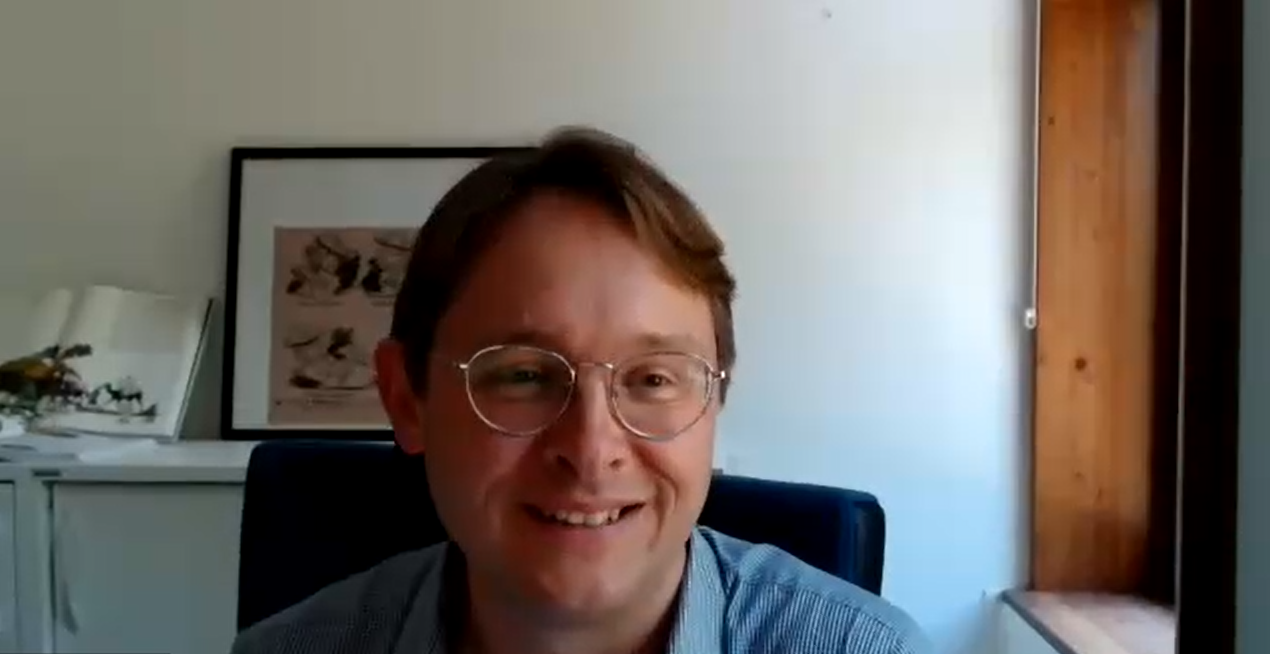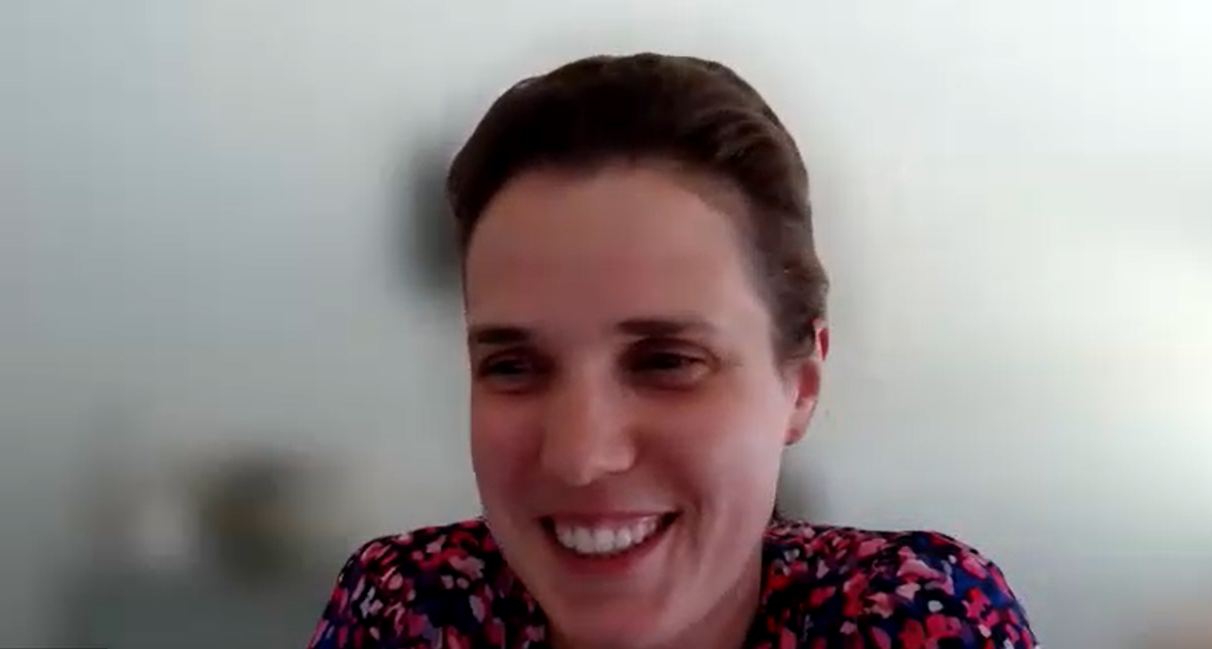Published on
23. July 2025
Costs and rewards on the path to a professorship
The fact that there is no one ideal path to a professorship has already been shown by the BGHS' previous online events entitled "BGHS Alumni’s Experiences on the Way to a Professorship". In the third edition, which took place at the beginning of July, different academic worlds in Germany came together. Theo Jung reported on his path to a professorship in Modern and Contemporary History at the University of Halle-Wittenberg and met Dorothee Wilm, who described her experiences as a multiple substitute professor at Bielefeld University of Applied Sciences (HSBI). In conversation with Clara Buitrago from the BGHS office, both talked about the specific costs and rewards offered by the German academic system.

(Foto: Theo Jung)

(Foto: Dorothee Wilm)
Mobility - regional and sectoral
The high expectations regarding the mobility of candidates for an academic career were an important topic during the discussion. Theo, who originally comes from the Netherlands, explained that he came to Bielefeld University to do his doctorate, then accepted an assistant position at the University of Freiburg for his post-doctoral habilitation and moved to the University of Halle-Wittenberg for a professorship. "I went where the job was," he said matter-of-factly. That was out of the question for Dorothee. She has a family with two small children and decided early on to stay in Bielefeld. That is more important to her than getting a professorship. Her mobility relates to different sectors of the labour market. She had already worked in a company for six years before her doctorate and sees an opportunity to return to the business world. This professional experience outside the university also qualified her for the substitute professorships at the HSBI, which she has held for many years, albeit always on a temporary basis.
Workload: "I'm enjoying what I'm doing but it's a lot"
Both emphasised that they really enjoy their work and feel good about it. But they also talked about the high workload and how they deal with it. For Dorothee, teaching is the main task; the teaching load at the HSBI is 18 hours per week. However, she pointed out that the seminars repeat and that she has a portfolio of around ten fully prepared courses. However, the preparation was very hard in the first few years because the students at the HSBI are used to learning from scripts and presentations. She first had to create these. The large number of courses also entails a lot of communication with the students and many examinations. "I work highly efficiently and I don't take breaks," she says, describing how she deals with this workload. However, there is little room for research during working hours. She writes academic articles or project proposals at the weekend or at night. Theo also reported a large number of tasks he has to place in his working day. He gave aspiring academics the following advice: "Be a workaholic". When he was appointed to a professorship two and a half years ago, the demands on him increased enormously. Compared to his time as an assistant, his teaching load doubled to eight hours, which have to be prepared anew every semester. As a professor, he also has personnel responsibility for his staff. In addition, there are tasks in management at university and faculty level, but also in research groups, for which he was not well prepared. And then there are tasks in various public spheres, such as on commissions in museums, foundations, journals and book series, selection committees for prizes and research funding. "I take that seriously," he says, but these were also new tasks for him that he first had to learn to understand. Doing research on the side is difficult for him as a historian, as he normally has to go to the archives to do this. Now he tends to write project proposals for research, which other people then complete. A lot of this happens as teamwork, which he was also not used to.
Belonging and appreciation
The conversation showed that it is important whether and how you feel you belong and are appreciated in academia. For Theo, it seems to have always been clear that he belonged in academia. Even though it took him a few years, his path was very direct: from his studies to his doctorate and post-doctoral habilitation to a professorship. He is now part of the university and the scientific community, which reflects not least in the wide range of management activities he has to fulfil. "Be visible", he advised the doctoral researchers, "be part of the environment". If you present your research work to the scientific community, colleagues might think of you when someone is needed for a job. It is important to pay attention to the quality of the qualification work. Dorothee's story is more ambivalent. She had worked very hard on her doctoral thesis and was very proud of it, but it is not so important for her current position. She described how she felt caught between two stools as an economic sociologist: the economists didn't want to talk about sociology and the sociologists didn't want to talk about economics. So she didn't seem to quite belong in either discipline. She got also the advice at university not to talk about her professional experience in business because it could jeopardise her academic credibility. She thought that weird, as she says, because this experience was part of her and she learnt a lot during those years. At the HSBI, both her academic expertise and her corporate experience are appreciated as qualifications. This made her a good fit for the business faculty, where she has been working for years.
And the topic of security?
The topic of precarious employment in academia hardly showed up in the conversation. Theo explained that although he occasionally had short-term employment contracts during his postdoc phase as an assistant, he always had the confidence that the contract would be extended. At the end of this phase, he then acquired a few more fellowships in order to have time to write his post-doctoral habilitation. However, he also emphasised that there is always a certain amount of luck involved. Dorothee benefits from her dual qualification, her professional experience in the company and her academic work. She considers her prospects of a lifetime professorship in Bielefeld to be rather slim, but as she said: "I could change to a company at any time and I'd be happy there as well".
Quintessence
Theo and Dorothee are in the end very happy with their very different positions and circumstances. Despite all the costs, their respective career paths have paid off. Theo advises only embarking on the adventure of an academic career if you are really sure that you want to, and are prepared to bear the costs. For Dorothee, it paid off in the end that she does not clearly belong somewhere, but can be employed anywhere.
The paths to a professorship are highly individualised. This comes at the expense of predictability and rewards you with comparatively great freedom. Those who choose this path should be aware of the opportunities and risks. The regular online event with alumni of the BGHS means to help with this.